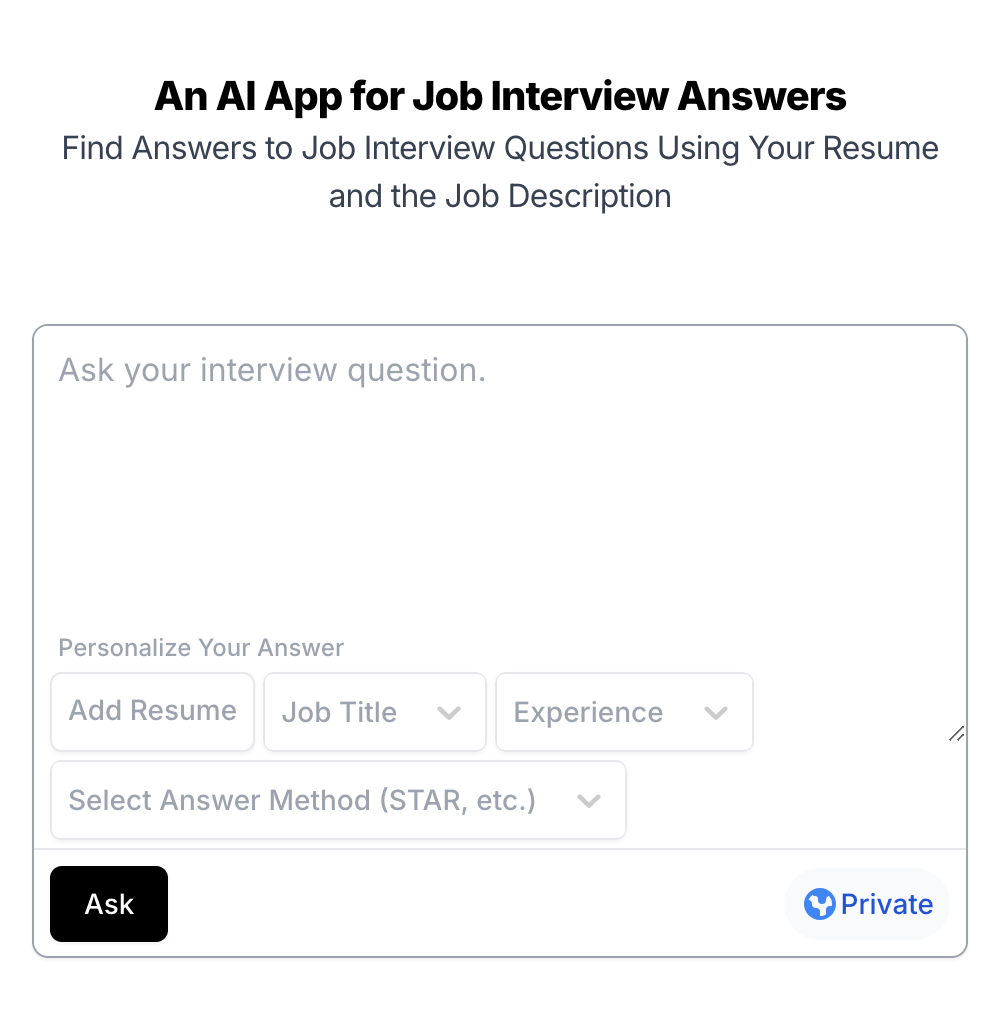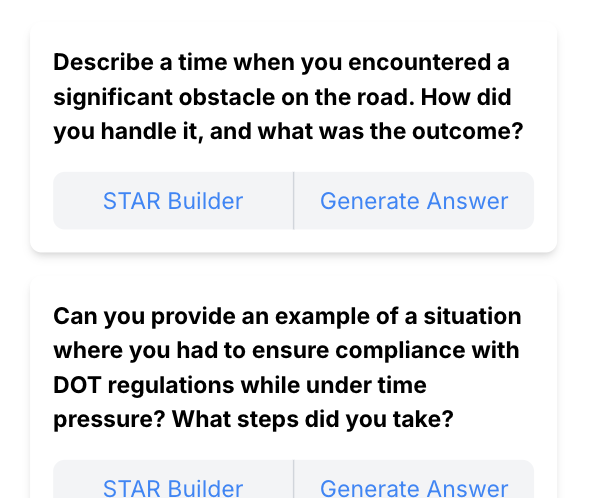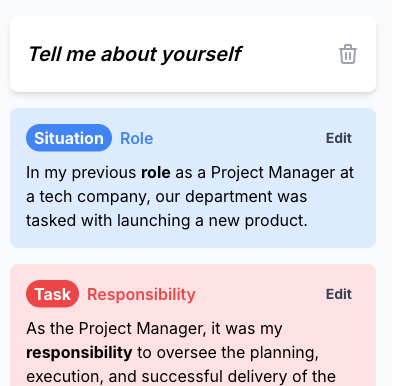7 Examples on how to respond to "What is your greatest weakness?"
Sun Dec 11 2022•Author: InterviewPro AI
Understanding the interview questions: What is your greatest weakness?
The question "What is your greatest weakness?" is often seen as a "trick" question that is designed to trip up job candidates and test their ability to think on their feet. This behavioral question is usually asked by Human Resources during a screening interview. The question may be phrased in a number of different ways, such as "What is your greatest weakness?", "What do you consider to be your biggest weakness?", or "Tell me about a time when you struggled with something at work and how you overcame it." In this post, we'll provide some tips and examples for responding to this type of questions in a way that will impress your interviewer and help you stand out from the competition.
7 examples of how to respond to the job interview question “What is your greatest weakness?”:
- I have a hard time delegating tasks and sharing responsibilities with others. I sometimes worry that they wouldn't do the tasks as well as I would, or that it would take more time to explain the tasks than to just do them myself. I realized that my reluctance to delegate was actually hindering the success of my team and can lead me to overworking and feeling overburdened with tasks. By taking on too much work, I was becoming overwhelmed and burnt out, which was affecting my own performance and the team's productivity. I eventually overcame this challenge by reminding myself that my team members were skilled and capable, and that delegation was actually a way to support their growth and development.
- I have trouble saying "no" to requests. While I always want to help out and support my colleagues, I sometimes found it difficult to say "no" when I knew that taking on additional work would compromise the timeline and quality of our own project. I have to remind myself that it is important to prioritize the needs of my own team and project, and that saying "no" to additional requests was necessary in order to maintain our project's success. I also made sure to communicate clearly and respectfully with the other teams, explaining why we couldn't take on their additional work at that time."
- I used to struggle with time management. I often found myself getting overwhelmed and not prioritizing my tasks effectively. I had a lot of responsibilities and projects to juggle. As a result, I would end up working long hours and feeling stressed and burnt out. I eventually overcame this challenge by implementing time management strategies. I started using a planner to organize my tasks and schedule, and I set aside specific times for focused work and for breaks. I also learned to prioritize my tasks based on importance and urgency, and to say "no" to additional requests when necessary. I've been using a planner and setting specific goals to improve my organization and ensure that I'm focusing on the most important ones first."
- I tend to be a bit shy in social situations. Especially when meeting new people . I've been trying to push myself out of my comfort zone by attending networking events and practicing conversation starters to become more confident in these situations."
- In the past, I've had trouble with public speaking. To overcome this, I've taken courses and sought out opportunities to practice, such as volunteering to lead meetings at work. I've found that by preparing thoroughly and staying calm, I'm able to deliver presentations more effectively."
- One area that I'm working on is being more decisive. I tend to overanalyze situations and have difficulty making decisions. I've been trying to trust my instincts, set clear criteria for decision-making and to seek input from a limited number of stakeholders, rather than trying to gather input from everyone."
- I am sometimes too much of a perfectionist. This can lead me to spending too much time on tasks and becoming overly critical of my own work."
Things to take into account
- Avoid giving a response that could negatively impact your chances of getting the job. For example, don't say something like, "I'm a perfectionist" if your job requires perfectionism (Quality Assurance Specialist, Computer programmer, Surgeon) or "I'm a workaholic" because these are often seen as positive qualities or qualities that are required for the job. Some people may try to present a weakness as a strength, but this can also backfire and make them seem dishonest or unprepared.
- Tell a story and give examples. Your answer will seem more genuine and make it memorable for the interviewer. Keep a list of memorable events in your life where you've overcome your weakness and achived positive results. Use this examples to answer this question.
- Focus on a weakness that you're actively working on improving. Tell a story and give examples on how you are working on fixing this weakness and the improvements that have led to positive results.
- Try to frame your answer in a way that highlights a strength or skill. For example, if your weakness is public speaking, you could say, "I used to struggle with public speaking, but I've been taking courses and practicing to improve my communication skills. I've found that by preparing thoroughly and staying calm, I'm able to deliver presentations more effectively." This answer shows that you're aware of your weakness and are taking steps to overcome it.
Using the STAR Format.
Tell your story using the the STAR format (Situation, Task, Action, Result). It will help you provide a clear and concise answer that highlights your skills and experiences.
To use the STAR format to answer the question "What is your greatest weakness?", follow these steps:
- Describe the Situation or context in which you faced a challenge or obstacle due to your weakness.
- Describe the Task, what needs to be done to overcome the challenge or obstacle.
- Describe the Action, what are the steps that you took to address the challenge or obstacle.
- Discuss the Result or outcome of your actions. This can include any positive outcomes, as well as any lessons learned or improvements that you made as a result of the experience.
For example, you might say something like: "In my previous job, I struggled with time management.
- The Situation: I had a lot of tasks and deadlines to juggle, and I was often feeling overwhelmed.
- The Task: I had to find a way to be more organized and efficient.
- The Action: Use a planner to schedule my tasks and set aside dedicated time for each one.
- Result: I was able to complete my work on time and reduce my stress levels."
Can't find what you're looking for?
Try our AI-Powered Interview Preparation Tools
Prepare for your job interview with our AI tools. Tailored answers, custom questions, and STAR method responses.


